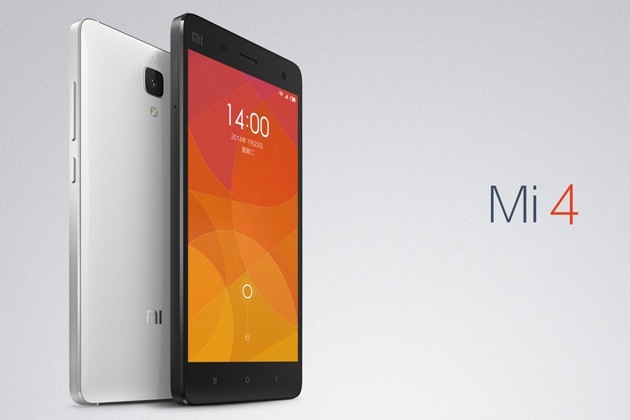Why Apple Is Not Suing Xiaomi - Yet

Xiaomi may continue to deny it is copying Apple with it smartphones, tablets, software, marketing material and even the way its CEO dresses, but as the world begins to pay more attention to the Chinese company, its denials are beginning to ring ever more hollow.
This week the company released MIUI 6, its proprietary mobile operating system which is a forked version of Android. The reason it hit the headlines across the world however was not because it looked too much like Google's software, but because it was a clear rip-off of Apple's iOS.
From the lock screen through to the flat interface, almost identical core apps like calendar and calculator and the layered structure of MIUI 6, the company's software does much more than simply "draw inspiration from" Apple's iOS.
The launch of MIUI 6 follows the release of:
The company's CEO Lei Jun even dresses like former Apple CEO Steve Jobs and finessed a recent presentation with a slide saying "One more thing".

Hair-trigger
So how is Xiaomi getting away with this, especially with Apple being known for having a hair-trigger when it comes to launching lawsuits against competitors it believes to have infringed any of its copyrights?
The answer is that while Xiaomi has risen to prominence in the last six months, it is still very much a Chinese company operating in the Chinese market.
It may have become the number one smartphone manufacturer in China in the second quarter of 2014, but on the global front it remains a speck in the rear view mirror of Apple and Samsung.
Rock the boat
While Apple is the much bigger company, it is a relative new-comer to the Chinese smartphone market not even registering among the top five smartphone vendors in the country in the last quarter.
This is despite Apple finally signing a deal with China Mobile in January of this year, opening up the network's 800 million subscriber base.
China is becoming an increasingly important market for Apple as growth in sales of iPhones slows due to market saturation in western markets like the US and Europe.
It is therefore unwilling to rock the boat too much as it looks to grow its market share in China.
Potential backlash
Another reason for holding back from issuing lawsuits, is the uncertainty surround the regulatory position in the country. Patent expert Florian Mueller told IBTimes UK that trying to enforce patents in China can be a risky business:

"Generally, western companies that have tried to enforce patents against Chinese rivals have often found that those rivals own some interesting patents of their own, not only but especially in China. Apple will have to think hard about a potential backlash in China before suing Xiaomi."
Mueller added that another reason for Apple not launching legal action against Xiaomi so far is down to poor outcomes in the past:
"Apple probably has a diminished appetite for patent litigation after its dismal results against Samsung, Motorola and HTC."
Expansion
However, this lack of legal action would likes change very quickly when/if Xiaomi decides to try and break into markets like Europe and the US - which some claim could happen as soon as next year.
"Apple will presumably still consider enforcement if it's profoundly concerned over the uniqueness of its products," Mueller says.
Alex Wilson, partner at IP litigation firm Powell Gilbert LLP, added: "By launching its product range inthe US and UK, Xiaomi would be entering rough seas where the fins of the major patent holders are already circling. They are certainly not the first to dive in, as HTC, Samsung, ZTE and Huawei have all taken the plunge in recent years."
Wilson says that while Apple's patent portfolio is said to be "a mile wide" is of "uncertain depth" and has been "wielded with relatively modest impact thus far".
Apple and Samsung have been involved in high profile court battles around the world over the last two years, but the South Korean company appears to have survived the war of attrition, as have HTC and Nokia in their battles with Apple.
Best defence is attack

While Apple's is the company which is most likely to challenge Xiaomi should their products cross the Pacific, it is not guaranteed to win says Wilson:
"Apple's portfolio has a particular emphasis on optional 'nice to have' features, which can often be designed around with relative ease. In some cases, these features have also not survived the scrutiny of the courts, as we saw with the 'slide to unlock' patent."
Even if Apple doesn't win however, just defending worldwide patent cases, which often involve dozens of patents, could cost Xiaomi millions in legal fees.
Wilson advises the company that the best form of defence is attack:
"The best defence for any new entrant, including Xiaomi, would be to build up their own arsenal of patents to fight back or, for those late to the party, marshal the resources of patent brokers, widely considered to be the 'arms dealers' of the patent world."
© Copyright IBTimes 2025. All rights reserved.





















